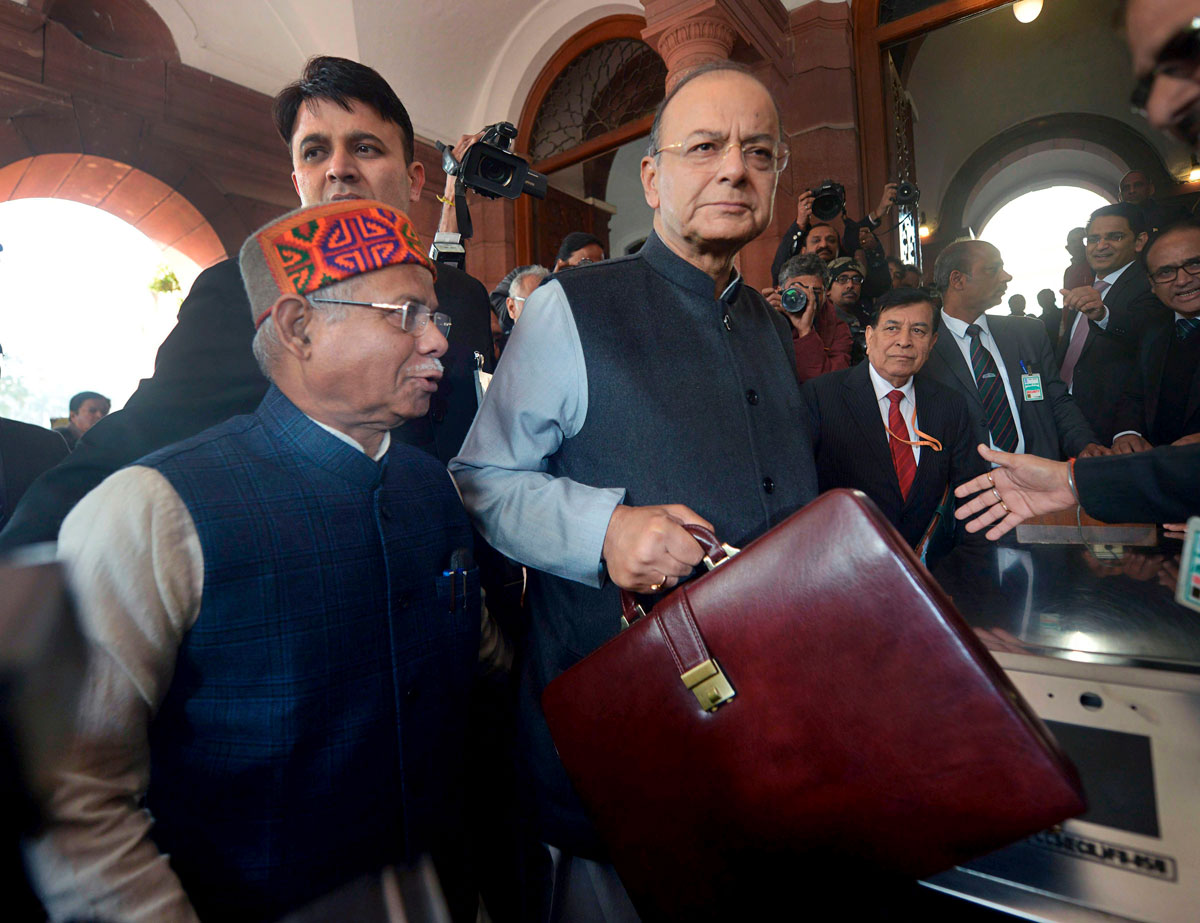India’s 2018 Union Budget
India’s Minister for Finance and Corporate Affairs Arun Jaitley (r) and Minister of State for Finance Shiv Pratap Shukla arrive at Parliament House to present the Union Budget 2018-19, in New Delhi, Feb. 1. (Manvender Vashist/PTI)
The Indian government announced the “world’s largest” health insurance scheme for India’s 50 crore poor in its last full budget before general elections, Feb. 1, focusing heavily on uplifting agriculture and rural sectors, while paying little attention to the middle class. Fiscal discipline has taken a backseat in the latest annual Indian budget which contains many tinges of populism, noted Indian economist Eswar Prasad said, Feb.2, writes Lalit K. Jha.
India’s Budget Unveils Mega Health Insurance, Gives Little to Middle Class
Finance Minister Arun Jaitley presented the budget in Lok Sabha, Feb. 1, to repeated thumping of desks by treasury members led by Prime Minister Narendra Modi, who later described it as a vehicle to build a “new India.”
The budget is “farmer friendly, common citizen friendly, business environment friendly” and will add to “ease of living and ease of doing business,” Modi said in a televised address.
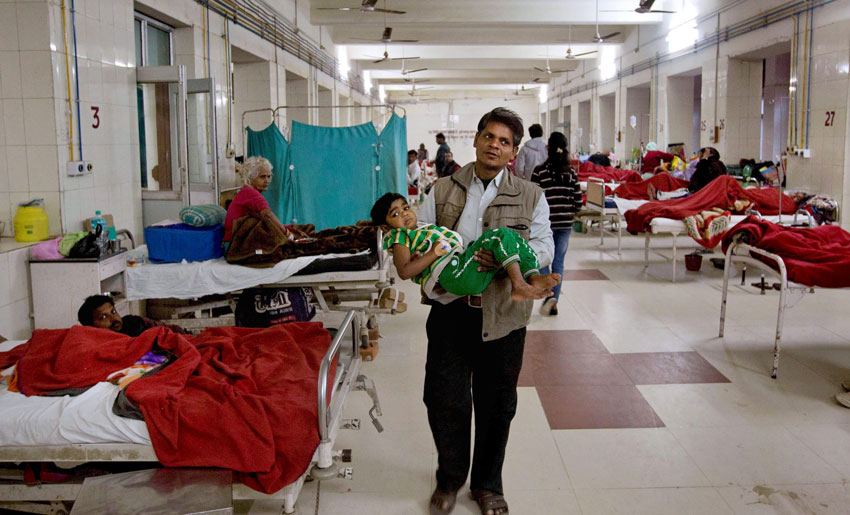
With chaotic implementation of the Goods and Services Tax and demonetization causing distress in the economy, Jaitley announced massive spending on rural and urban infrastructure as also lower tax rates for small and medium enterprises.
While continuing the 10-15 percent surcharge on super-rich, he raised the health and education cess, levied on all taxable income, to 4 percent from 3 percent at present.
The opposition slammed the budget, with the Congress calling it “defeatist” and a “big letdown” while the Left parties dubbing it an election-minded “big jumla (rhetoric).”
“It is a campaign for them. We consider it as a ‘big jumla’. We think it is an election campaign as talks are going on for early elections,” CPI(M) Lok Sabha leader Mohd Salim told reporters.
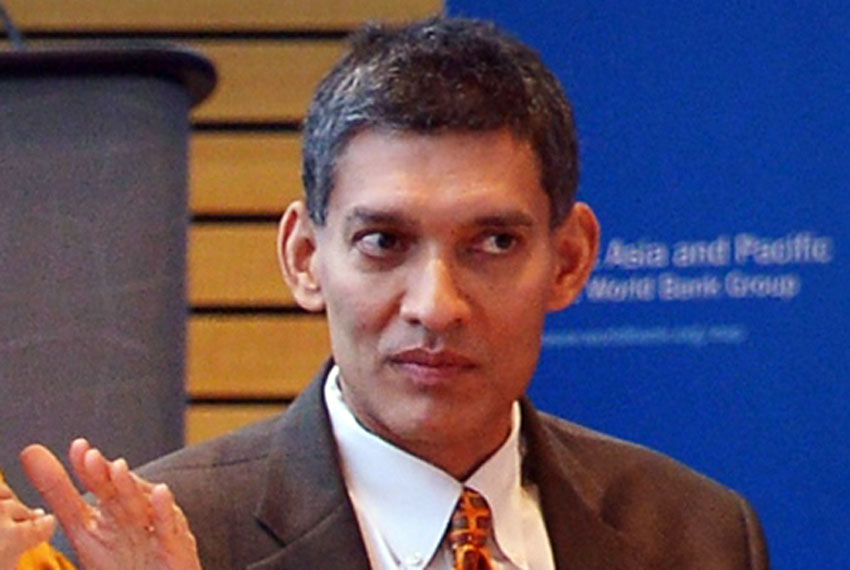
The centerpiece of the budget was the government’s plan to provide universal healthcare through a ‘National Health Protection scheme.’ It provides a cover of up to Rs. 500,000 per family per year for secondary and tertiary care hospitalization to 100 million poor and vulnerable families, or about 500 million beneficiaries, nearly half of India’s population of 1.25 billion.
This, Jaitley said, will be world’s largest health protection scheme.
He committed an expenditure of Rs 1.38 lakh crore on health, education and social protection.
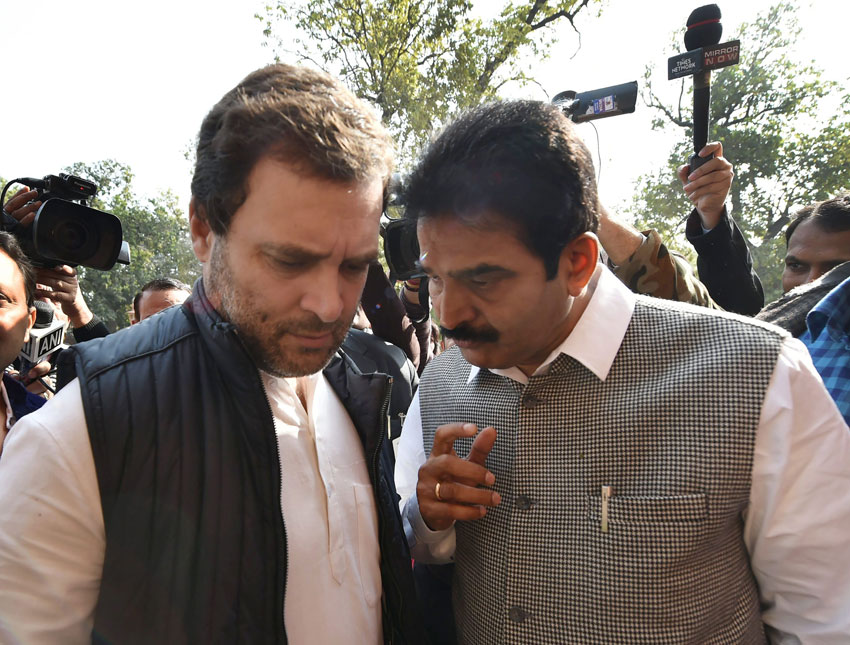
But to fund these, he let go of the fiscal consolidation roadmap. As a result, fiscal deficit for the current fiscal will be 3.5 percent of the GDP as against the previous target of 3.2 percent, and 3.3 percent in 2018-19, as opposed to 3 percent set earlier.
Fiscal deficit in 2016-17 was 3.5 percent of the GDP.
Keeping the income tax rates and slabs unchanged, Jaitley introduced a Rs. 40,000 Standard Deduction for salaried employees and pensioners in lieu of the present exemption in respect of transport and medical expenses.
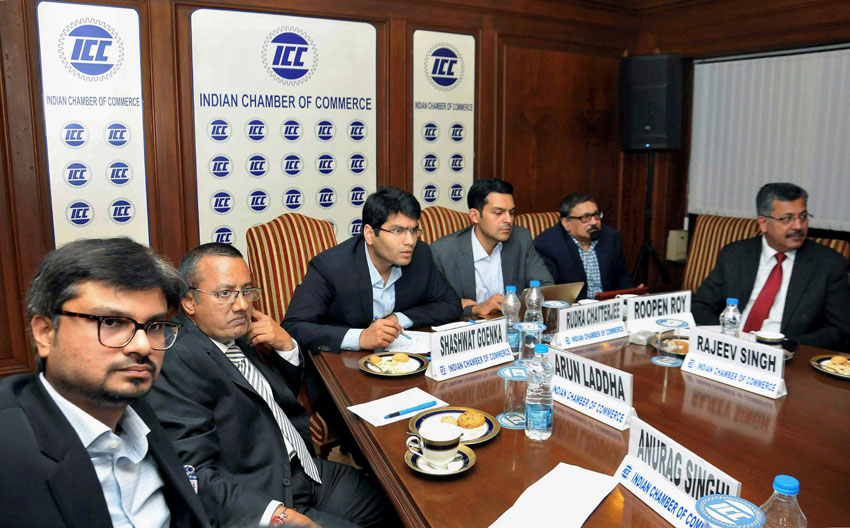
In the 110-minute speech, in which he kept switching from English to Hindi, Jaitley announced plans for agriculture, rural housing, organic farming, animal husbandry and fisheries with a total allocation of Rs. 14.34 lakh crore.
The defense budget was increased by 7.81 percent to Rs. 2.95 lakh crore against last year’s Rs. 2.74 lakh crore, belying expectations of a significant hike when the armed forces are facing growing challenge on the borders with both Pakistan and China.
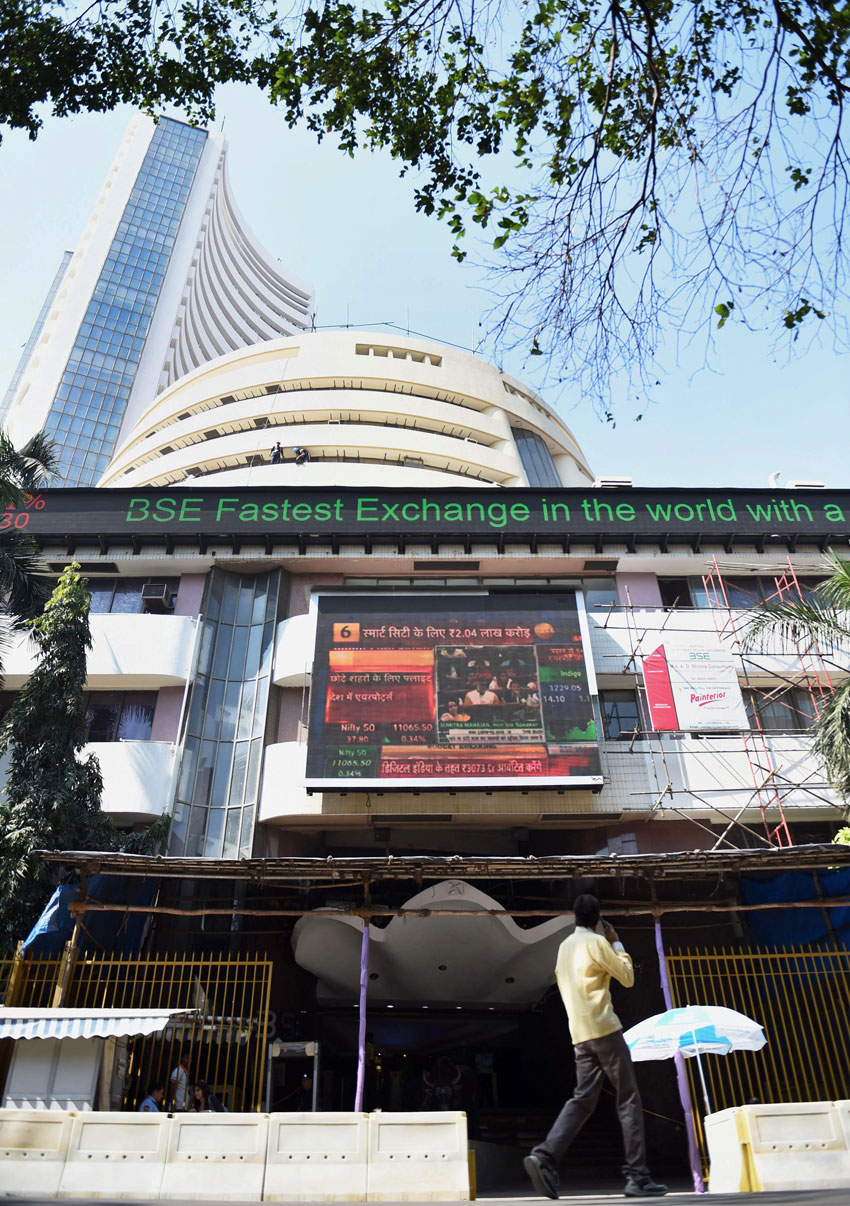
Jaitley, who had in 2015 promised to reduce corporate tax from current 30 percent to 25 percent over four years, proposed lower tax rate of 25 percent for companies with turnover of up to Rs 250 crore in 2016-17.
The Union Budget 2018-19 was the last full budget before the general elections next year, when a vote on account would be presented. The next full budget will be presented by the new government.
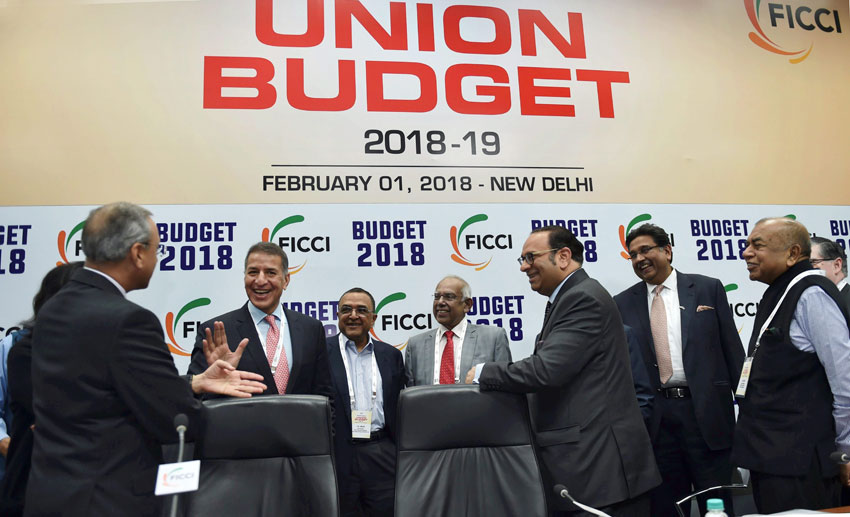
Jaitley said measures to address bad loans of small and medium enterprises would be announced soon. He proposed setting up Rs 3 lakh crore target for lending to small enterprises.
Three government-owned non-life insurers — National Insurance Co, United India Assurance Co and Oriental India Insurance Co — will be merged into a single entity and listed subsequently.
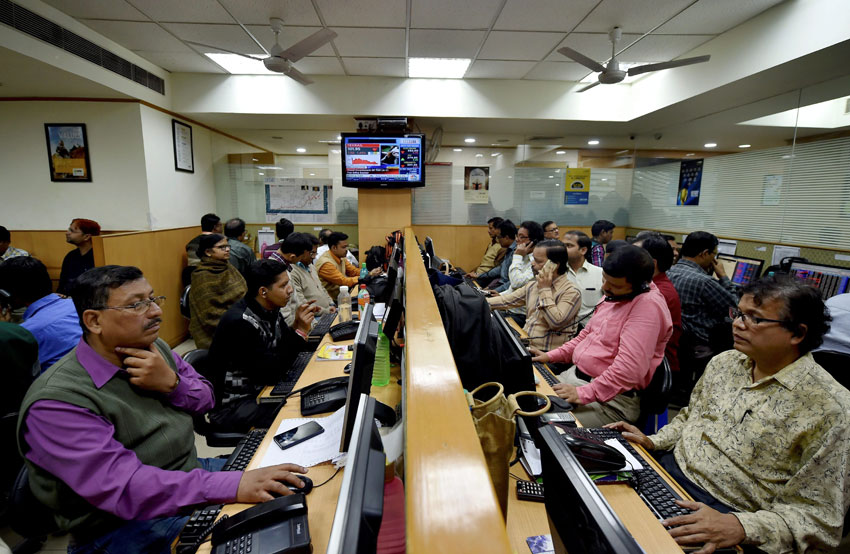
The process of strategic sale in 24 state-run companies including privatization of Air India has begun and more exchange-traded fund offers including debt ETFs will come.
Special schemes for states around Delhi will be implemented to address air pollution, he said adding removal of crop residue will be subsidized in order to tackle the problem of pollution due to burning of crop residue.
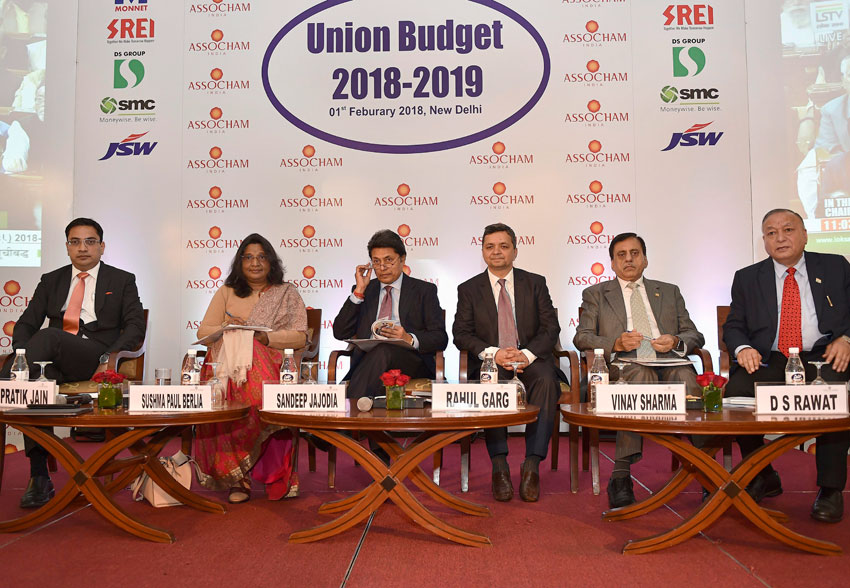
Fiscal discipline has Taken a Backseat in Budget: U.S. Economist
Prasad, a professor of trade policy at the prestigious Cornell University, said there were no major measures in the budget that could stimulate private investment.
“Fiscal discipline has taken a backseat in this budget, which contains many tinges of populism, as was to be expected in the run-up to a national election cycle,” Prasad told PTI.
“There are no major measures that could stimulate private investment, which has been notably weak even during the recent period of high growth,” Prasad said.
However, the proposed new health insurance scheme and other measures that will in principle directly benefit the poor are welcome, Prasad said.
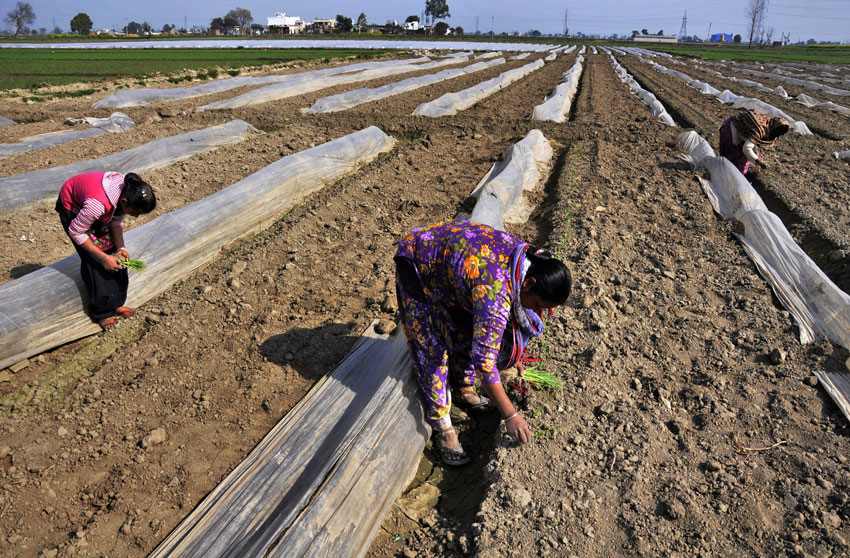
“Although it is unclear how exactly some of these programs will be funded within the budget envelope,” he said.
U.S. India Business Council (USIBC) president Nisha Desai Biswal said the Indian government has displayed its commitment to areas that will benefit India’s growth and prosperity for many years to come.
“Infrastructure development, access to health care, affordable housing, energy, and education for all citizens form the backbone of any growing economy… American industry is committed to growing, strengthening, and sustaining these areas of collaboration with India,” Biswal said.
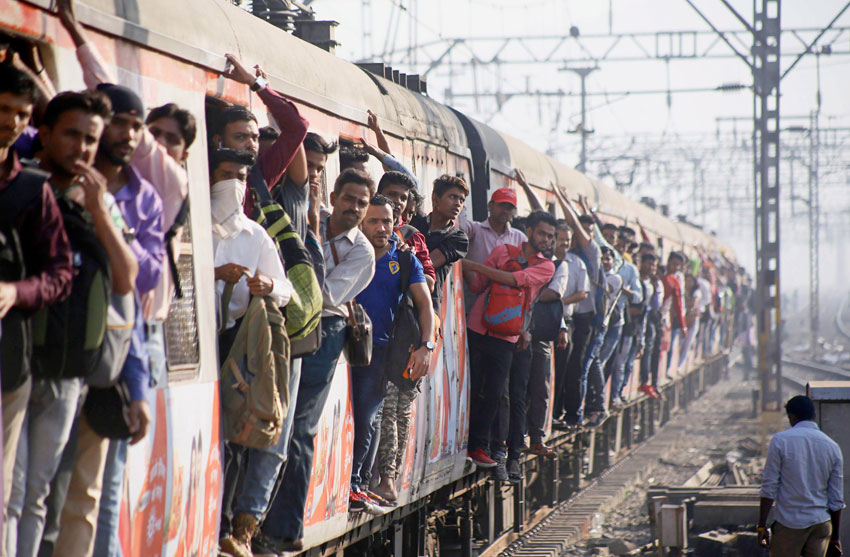
In the last three years, Biswal said, India has been on a robust path to growth, backed by a strong economic reform agenda.
Karun Rishi, president of USA-India Chamber of Commerce, said the budget carefully balances the essentials of accelerating growth and fiscal prudence.
Focus on agriculture and health is a game changer, he said.
“We commend Finance Minister Arun Jaitley for his ambitious, out of the box thinking by covering the bottom 40 per cent of all households under the health insurance scheme – ‘Ayushman Bharat’,” Rishi told PTI, adding that this “bold and pragmatic” step will help the poor and low-income families.
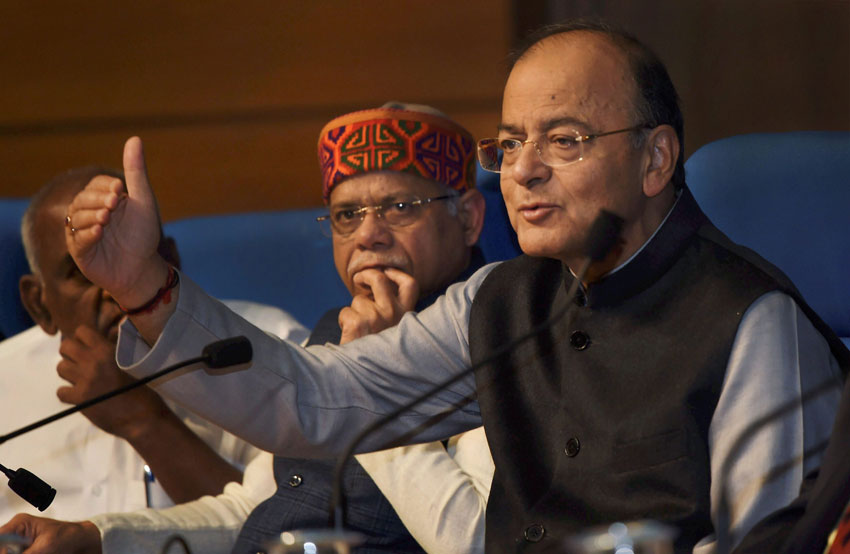
Rishi lauded Jaitley for making a pitch for the ‘technologies of the future’ in his Budget speech.
“India can be a significant player in Artificial Intelligence, Machine Learning and Blockchain technologies.
The use of Blockchain can add muscle to the digital economy especially in the BioPharma and Healthcare sector,” Rishi said.
According to Richard Rossow, Wadhwani Chair in U.S.-India Policy Studies at the Center for Strategic and International Studies, the budget did meet analysts’ expectations in terms of having specific programs to appeal to farmers and rural voters.
“Included among these are a new health care insurance program for the poor, expanded programs to deliver subsidized cooking gas and electric power connections, and escalated programs to build homes and toilets,” Rossow said.
Barriers to the export of agriculture items will be relaxed, and the Minimum Support Price (MSP), a floor price the government pays to farmers for staple crops, will see a hefty increase, he said.
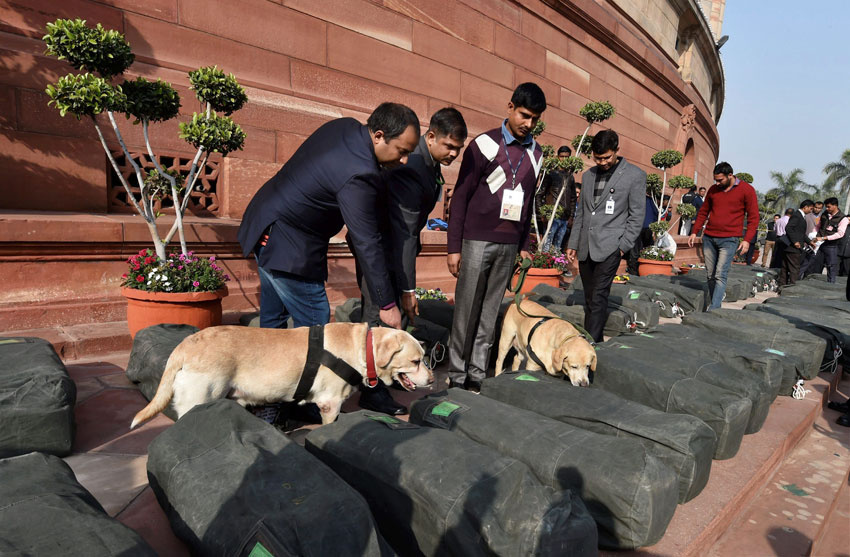
Imported Cars, Juices, Mobiles, Gold, Silver to be Costlier
A large number of imported items including mobile handsets, cars and motorcycles, fruit juices, perfumes and footwear will become costlier as the Finance Minister Arun Jaitley hiked customs duties on these products in the Union Budget 2018-19, Feb. 1.
However, select items such as imported raw cashew nuts, solar tempered glass and raw materials and accessories of cochlear implants will become cheaper with the government reducing import duties on these items.
The following is a list of imported items that will become costlier:
- Cars and motorcycles
- Mobile phones
- Silver
- Gold
- Vegetable, fruit juices, including orange and cranberry
- Sunglasses
- Miscellaneous food preparations other than soya protein
- Perfumes and toilet waters
- Sunscreen, suntan, manicure, pedicure preparations
- Preparations for oral dental hygiene, denture fixative pastes and powders; dental floss
- Pre-shave, shaving or after-shave preparations, Deodorants, bath preparations, depilatories, perfumery
- Scent sprays and similar toilet sprays
- Truck and Bus radial tires
- Silk Fabrics
- Footwear
- Colored gemstones
- Diamonds
- Imitation jewelry
- Smart watches/wearable devices
- LCD/ LED TV panels
- Furniture
- Mattresses
- Lamps
- Wrist watches, pocket watches, clocks
- Tricycles, scooters, pedal cars, wheeled toys, dolls carriages, dolls, toys, puzzles of all kinds
- Video game consoles
- Articles and equipment for sports or outdoor games,
- swimming pools and paddling pools
- Cigarette and other lighters, candles
- Kites
- edible/vegetable oils such as olive oil, groundnut oil
The following is the list of imported items that will become cheaper:
- Raw cashew nuts
- Solar tempered glass or solar tempered glass used for manufacture solar panels/modules
- Raw materials, parts or accessories used in making cochlear implants
- Select capital goods and electronics such as ball screws and linear motion guides.
Railway Budget
Finance Minister Arun Jaitley announced a capital expenditure of Rs 1.48 lakh crore for the Indian Railways in his Budget 2018 speech.
Most of this money will be spent on capacity expansion, since it is a priority for the national transporter, Jaitley said while presenting the Union Budget.
“Over Rs 1.48 lakh crore to be allocated for railways in next fiscal,” Jaitley said.
He proposed a target of doubling 18,000 km of lines and said gauge conversion is underway to eliminate capacity constraints.
The minister said 36,000 km of rail track renewal has been targeted in the coming year while 4,267 unmanned railway crossings on broad gauge routes are to be eliminated in the next two years.
New world-class train sets are being manufactured, dedicated freight corridors are coming up and electrification being taken up as a priority task for which Indian Railways is expected to explore other avenues to raise funds, the finance minister said.
Wifi and CCTVs will be progressively provided in all trains and there will be escalators at stations with 25,000- plus footfall.
The minister also pointed out that 600 stations have been earmarked for modernization by the railways. The focus will also be on a suburban rail network in Mumbai and Bangalore.
Laying out a roadmap for the Indian Railways, Jaitley said the focus would be on modernization of signaling, use of fog safety devices, better passenger amenities and safety in the coming year.
Cryptocurrencies Not Legal, Will Eliminate their Use: FM
Finance Minister Arun Jaitley said, Feb. 1, all crypto currencies, which include bitcoins, are illegal and the government will take all measures to eliminate their use.
“The government does not consider crypto currencies as legal tender or coin and (will) take all measures to eliminate the use of crypto assets…,” he said while presenting the Union Budget 2018-19 in the Lok Sabha.
Last year, Jaitley had informed Parliament that there are no regulations governing virtual currencies in India and the RBI has not given any license to any entity/company to operate such currencies.
He had further said that taking cognizance of concerns raised at various fora from time to time on increasing use of virtual currencies (VCs) and the regulatory challenges, the Department of Economic Affairs (DEA) constituted a committee with representations from DEA, Department of Financial Services (DFS), Ministry of Home Affairs (MHA), RBI, Niti Aayog and SBI.
The committee has submitted its report and it is being examined.
